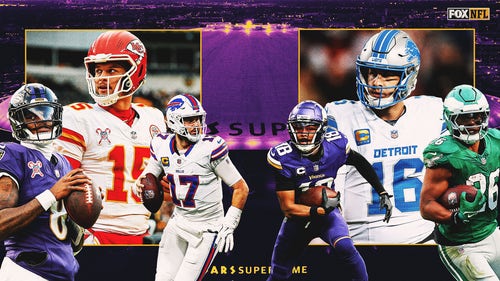
Brady, Goodell meet for more than 10 hours in QB's appeal hearing
After a 10-hour hearing, Tom Brady now must wait to find out if his appeal of a four-game suspension carried any weight with NFL Commissioner Roger Goodell.
Brady was suspended by the league for his role in the use of deflated footballs in the AFC Championship Game win over Indianapolis. He arrived at the NFL's Park Avenue offices Tuesday morning, as did attorney Jeffrey Kessler, who is leading Brady's defense.
It was growing dark when Goodell left the league headquarters after he heard Brady and representatives from the players' union during the lengthy meeting. League security said Brady also had left.
No details of the hearing were immediately available.
"I think we put in a very compelling case," Kessler said, adding that no timetable on a decision by Goodell had been given.
Kessler said he would have no further comments Tuesday night, and neither the union nor the league immediately commented.
This was the latest step in the protracted "Deflategate" scandal, and no decisions were expected Tuesday.
Indeed, it is uncertain how soon Goodell will announce anything; he could decide to keep the suspension as it is, reduce it or completely wipe it clean.
With training camps set to open in five weeks, the commissioner has some time to consider the evidence presented at the hearing. But the Patriots also can't finalize training camp practice plans for the quarterback position until they know Brady's availability for the 2015 season.
Should Goodell keep the four-game ban -- or even if he reduces it but doesn't dismiss it totally -- Brady could go to court. That could delay any solution for months.
On Tuesday, as Goodell was hearing a myriad of testimonies, Brady supporters were outside, some wearing "Free Brady" T-shirts. At least until the rains came, that is.
Some reporters joked that the meeting lasted so long because a summer storm was hitting the city and no one wanted to leave the building in such weather.
But just past 8:30 p.m. EDT, the principles headed out.
The NFL Players Association had asked Goodell to recuse himself from hearing the appeal because he could not be impartial and might be called as a witness. But Goodell said it was his responsibility to oversee the hearing to protect the integrity of the league.
Based on the league-sanctioned Wells report, Brady was suspended and the Patriots were fined $1 million and docked a pair of draft picks.
Among the key elements of Brady's appeal: who ordered his four-game suspension and whether science supports the league's findings about deflated footballs.
The NFL says Goodell authorized the discipline that was imposed by league executive Troy Vincent, who signed the letters sent to Brady and the Patriots informing them of the penalties. The NFLPA challenged Vincent's power to issue punishment, citing Article 46 of the league's collective bargaining agreement.
Goodell dismissed the union's claim.
"I did not delegate my disciplinary authority to Mr. Vincent; I concurred in his recommendation and authorized him to communicate to Mr. Brady the discipline imposed under my authority as Commissioner," Goodell said in his letter to the union on June 2. "The identity of the person who signed the disciplinary letter is irrelevant."
The penalties were announced after investigator Ted Wells found that the Super Bowl champions illegally used under-inflated footballs in the AFC title game.
Goodell issued punishments to Greg Hardy, Adrian Peterson and Ray Rice in recent, high-profile cases involving players violating the league's personal conduct policy. The league doesn't consider Brady's case similar because it involved rules of the game.
Scientific arguments also were a major part of Brady's defense. Brady's lawyers tried to shoot down the findings of an independent firm hired to provide scientific analysis of the air pressure inside the footballs used by the Patriots and Colts during the AFC title game.
Brady's side claimed:
* The evidence collected in the Wells report doesn't prove Brady violated any NFL rules.
* The punishment is harsher than for similar violations.
While Brady is fighting his punishment, Patriots owner Robert Kraft declined to appeal the team's penalty, though he defended his franchise player and denied any wrongdoing by team employees.









